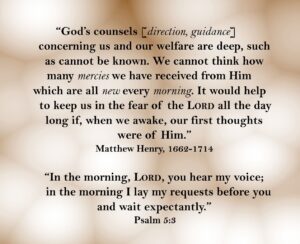Over the past fifteen months we have been exposed to suggestions, strong recommendations, and of late, even stronger requirements of how we should live, where we should spend our time (and where we can’t), and with whom we should spend it. There is no question in my mind that this new world we are now living in includes confusion, dissension and fear, creating an environment that easily leads to complaining, grumbling, and the freedom to lash out at will with caustic remarks and accusations. In truth, hurtful and bitter behaviour not only saddens, but frightens me. I’d rather stay home in the safety and peace of my own company than be exposed to confrontations that await me if I am not doing things according to someone else’s personal interpretation and expectations.
Further, I would suggest that when we live in this type of tension and uncertainty, it seems quite reasonable that we look for someone to blame. Government leaders? Scientists? Hostile nations? Those who stand on the other side of enforced regulations and appear as rebels? And what about God? Hasn’t He often—if not always—taken the heat for the dilemma in which we find ourselves? After all, someone has to be blamed! Why not God!
How many times have you heard—or perhaps have asked, “If God is a loving God, why does He permit such devastation and death? If God is a loving God, why doesn’t He intervene and put an end to our suffering?” In a desperate attempt to find an escape route for the angst that enshrouds us each day, we end up pointing a finger in His direction. We mistakenly make the assumption that we know better than God, that He needs to listen to us because we know best what we need! This is a dangerous approach to solving any dilemma we face. Do we dare question the wisdom of the Almighty and point an accusing finger in His direction?
finger in His direction. We mistakenly make the assumption that we know better than God, that He needs to listen to us because we know best what we need! This is a dangerous approach to solving any dilemma we face. Do we dare question the wisdom of the Almighty and point an accusing finger in His direction?
Forty-two chapters in the Bible talk about a man named Job. Throughout the first thirty-one chapters, it speaks of the wrong advice Job receives from three men, supposedly his friends. Job accuses God for the pain and suffering he has endured, challenges Him on His unfair treatment, and demands His appearance, basically saying to the Almighty, “Who do you think you are!” Job eventually receives some well-founded advice from another man that silences him; but it does not silence God! In Job 38:1-3, God responds to Job’s demands: “Then the Lord spoke to Job out of the storm. He said: ‘Who is this that obscures my plans with words without knowledge? Brace yourself like a man; I will question you, and you shall answer me.” And God’s entire speech stresses the vast difference between a God of all creation and one tiny man like Job. [If one has ever questioned the existence and power of the Almighty, a read through these chapters would remove any doubt!]
The last five chapters reveal God’s answer to Job’s unspoken question, “Who do you think you are?” Job quickly learns that God is GOD! And he responds with a contrite heart: “Then Job replied to the Lord: “I know that you can do all things; no purpose of yours can be thwarted. You asked, ‘Who is this that obscures my plans without knowledge?’ Surely I spoke of things I did not understand, things too wonderful for me to know” (Job 42:1-3). And God showed mercy: “The Lord blessed the latter part of Job’s life more than the former part” (Job 42:12).
In our efforts to find an escape route from the pain life affords us, we often become like Job, demanding, accusing, and daring to confront the Almighty. All to no avail! Through the struggles God has allowed in my life, I have learned—slowly, I will admit!—that there is an alternative approach in dealing with my daily challenges. I keep this quote from Matthew Henry in my Bible and often play the following song by Fernando Ortega. Both, along with God’s Word, are gentle reminders of a loving God who will shower me with blessings, mercy, and grace, even on my Job-days. Individually or together, they become the best escape route known to man!
Give Me Jesus – Fernando Ortega




Follow Me!